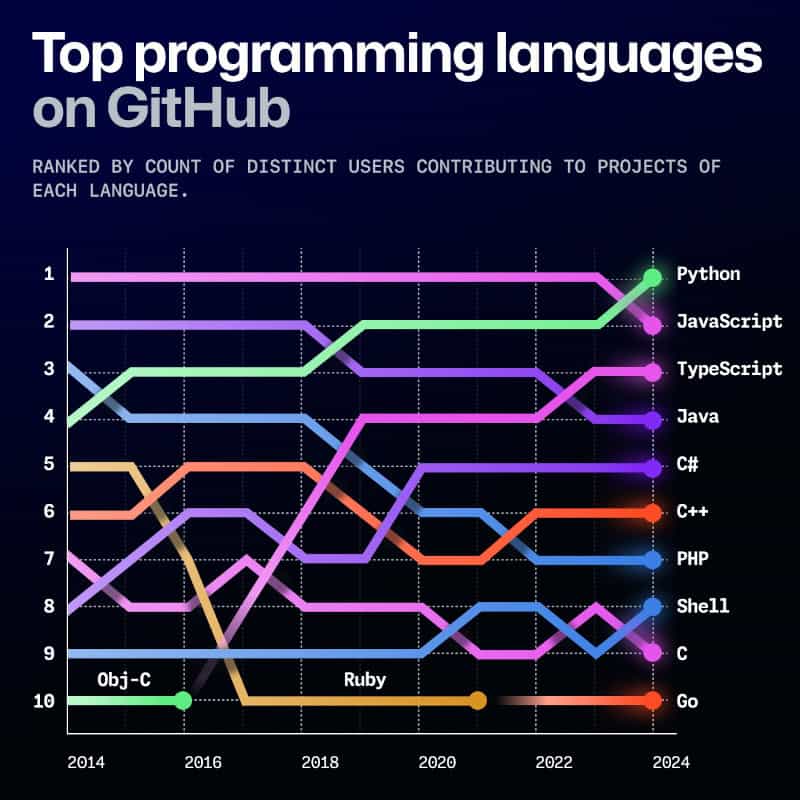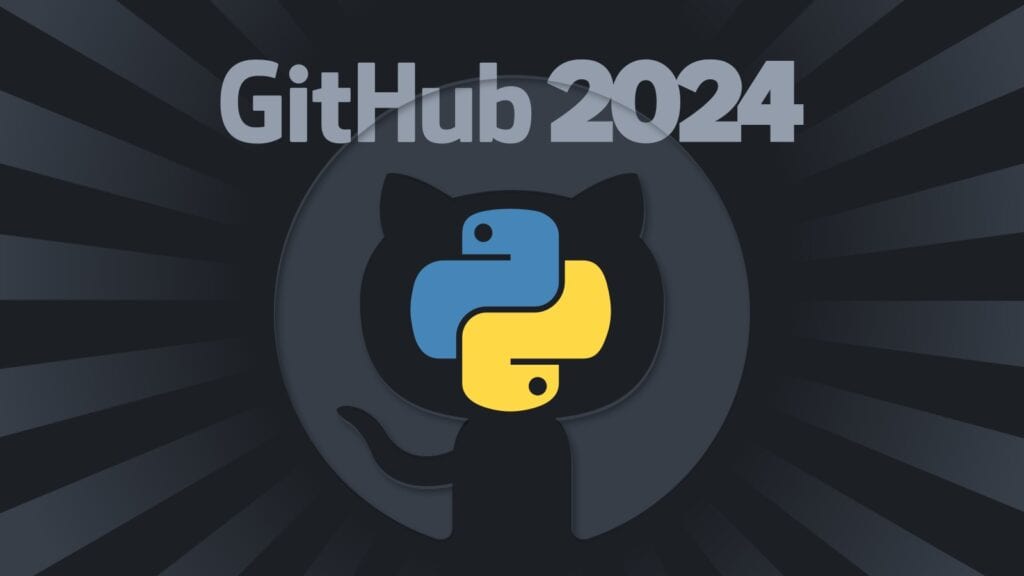GitHub’s latest report is quite an intriguing read, especially if you are involved in development. This year, it highlights how public and open-source activities evolve, particularly with AI’s growing influence.
Python Tops the Chart
And here’s the big news – JavaScript has lost its crown as the most-used programming language on GitHub for the first time in a decade. Python has now taken the lead, marking the first major shakeup at the top since 2019.
This shift is tied closely to the generative AI boom that has swept across the industry over the past two years.

However, the growth in Python’s use is not limited to a few niche areas. In fact, the language’s versatility—particularly in data science, AI, and beginner-friendly programming—has made it the preferred choice for many new developers.
Its relative simplicity and effectiveness in building machine-learning models make it ideal for both beginners and experienced developers.
Interestingly, JavaScript still holds the lead in terms of code pushes alone, but Python has surged ahead in overall activity, which includes contributions beyond mere code commits, such as pull requests, issue discussions, and comments.
TypeScript’s Steady Ascent
As Python and JavaScript continue to battle it out for the top spot, TypeScript is solidifying its place in the top three. After surpassing Java last year, TypeScript’s growth speaks volumes about its utility as a language that combines type checking and compilation—perfect for modern web applications.
Much of the JavaScript community is gradually transitioning to TypeScript, which seamlessly integrates within the same npm ecosystem. This steady migration highlights TypeScript’s potential to keep cutting into JavaScript’s dominance as developers adopt a more structured approach to coding.
Changing Trends in Programming Languages
The GitHub’s report also shed light on the broader changes within the global developer community. For example, Shell has overtaken C in the rankings, pointing to a shift towards infrastructure-focused activities, while HCL (HashiCorp Configuration Language)—used for Infrastructure as Code (IaC)—and Go continue to gain ground as cloud-native practices expand.
Rust also deserves mention. Originally designed to provide a safer alternative to C and C++, it now has become a favorite for those prioritizing safety, performance, and productivity. Notably, Rust’s memory-safe code has even found its way into major OSes, including Linux and Microsoft Windows.
For more in-depth information on all the trends among developers in 2024, visit the GitHub report.
Image credits: GitHub
